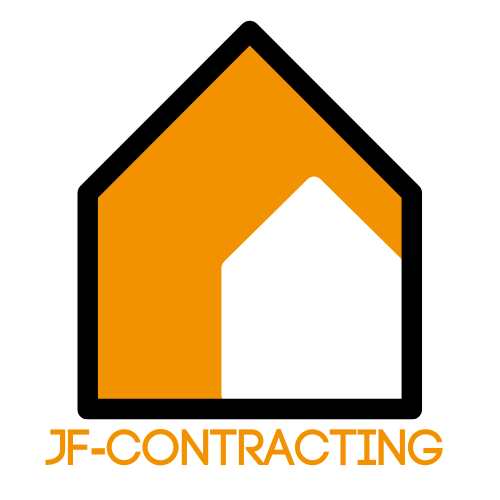In the bustling world of real estate, standing out is crucial. While social media is great for sharing your latest coffee run, a personal website is where the magic happens. It’s like having your own digital storefront, showcasing your unique personality and expertise. Imagine potential clients scrolling through your site, thinking, “Wow, this agent really knows their stuff!”
A well-crafted personal website not only highlights listings but also builds trust and credibility. It’s your chance to show off your charm and wit while answering all those burning questions buyers and sellers have. Plus, let’s be honest—who doesn’t want a website that makes them look like a rockstar in the real estate game? So buckle up, because creating a personal website might just be the best decision you make for your career.
Overview of Real Estate Agent Personal Websites
Personal websites play a significant role in the real estate sector. They serve as platforms for agents to showcase listings and share valuable insights about the market. An effective website reflects an agent’s brand, personality, and areas of expertise, making it easier for potential clients to connect.
Design quality matters. A well-organized site with intuitive navigation engages visitors, encouraging them to explore further. High-quality visuals of properties capture attention, while informative content addresses common concerns of buyers and sellers.
Search engine optimization (SEO) is crucial. Employing relevant keywords helps the website rank better in search results, attracting organic traffic. Each blog post or article should provide insights into local real estate trends, making agents go-to sources for information.
Website functionality enhances user experience. Features like property search tools, mortgage calculators, and contact forms streamline interactions. Social media integration also boosts visibility, allowing agents to share their listings across multiple platforms.
Building credibility is essential. Including testimonials from satisfied clients creates trust, highlighting an agent’s successful track record. Moreover, ongoing content updates keep the website fresh and relevant, encouraging repeat visits.
Analytics tools track website performance. Understanding visitor behavior helps agents refine their strategies and address client needs more effectively. Personal websites empower agents to establish authority in their field while fostering long-term relationships with potential clients.
Key Features of Effective Websites
Effective real estate agent websites blend functionality with appealing design. They engage potential clients and provide essential information quickly.
User-Friendly Design
User-friendly design fosters a seamless browsing experience. Clear navigation leads visitors through property listings and services easily. A logical layout prioritizes important information, placing it front and center. Engaging visuals capture attention and keep users interested. Consistency in fonts, colors, and formatting strengthens brand identity, creating a professional appearance. Integrating calls to action guides visitors towards inquiries or listings. Simplifying the user experience enhances the likelihood of conversions.
Mobile Responsiveness
Mobile responsiveness plays a crucial role in modern web design. With an increasing number of users browsing on mobile devices, websites must adjust to various screen sizes. Smooth, adaptive layouts ensure content displays correctly, regardless of the device. Quick-loading pages create an enjoyable experience, reducing bounce rates. Utilizing responsive design increases accessibility, allowing users to explore listings and contact agents anytime, anywhere. Optimizing images and minimizing unnecessary elements enhance site performance on mobile platforms.
SEO Optimization
SEO optimization significantly boosts visibility in search engine results. Incorporating relevant keywords strategically within content elevates rankings. Quality backlinks from reputable sources establish authority and credibility in the industry. Regularly updated content ensures search engines deem the site active, favoring it in queries. Meta tags and descriptions optimize individual pages, facilitating better indexing. Utilizing analytics tools aids in tracking performance and understanding user behavior, allowing agents to refine their online strategy continuously.
Importance of Branding
Branding in the real estate industry enhances an agent’s reputation and visibility. A strong personal brand creates a memorable identity that resonates with clients and sets agents apart.
Personal Branding Strategies
Agents can leverage online platforms to showcase their expertise. Using high-quality visuals for listings captures attention and encourages engagement. Additionally, sharing expert insights through blog posts or social media builds authority in the market. Incorporating personal stories adds a unique touch and fosters emotional connections. Consistent messaging across all platforms reinforces brand recognition and trust. Regularly updating content keeps audiences informed and engaged, positioning agents as industry leaders.
Building Trust with Clients
Establishing trust is essential in real estate. Positive client testimonials serve as powerful endorsements that influence potential buyers and sellers. Providing valuable market insights demonstrates competence and knowledge, reassuring clients of their expertise. Responsive communication fosters a sense of reliability, making clients feel valued and prioritized. Transparency about processes and fees alleviates client concerns and enhances confidence. Ultimately, a trustworthy agent cultivates lasting relationships, encouraging repeat business and referrals.
Best Practices for Content Creation
Focusing on effective content creation enhances the impact of a real estate agent’s personal website. Relevant and engaging content engages visitors and establishes the agent as a knowledgeable resource.
Engaging Property Listings
Effective property listings attract potential buyers by offering detailed descriptions. Highlighting key features, such as square footage, location, and amenities draws attention. Including high-quality images allows viewers to visualize the property. Agents can create virtual tours to enhance user experience further. Providing clear calls to action encourages inquiries, allowing interested buyers to connect easily. Listing updates keep the content fresh and relevant, catering to fluctuating market trends. Integrating neighborhood insights aids clients in making informed decisions. Thus, a comprehensive approach to property listings increases interest and inquiries about available properties.
Utilizing Testimonials and Reviews
Testimonials and reviews build credibility and trust for real estate agents. Including positive client experiences on the website showcases successful transactions. Highlighting specific services that clients appreciated adds authenticity. Visual elements, such as images of happy clients or properties sold, create emotional connections. Regularly updating testimonials reflects the agent’s commitment to excellent service. Encouraging clients to share their experiences generates fresh content and powerful endorsements. Displaying review ratings from trusted platforms enhances trustworthiness significantly. Ultimately, genuine testimonials serve as persuasive tools for attracting new clients.
A personal website is more than just an online presence for real estate agents; it’s a powerful tool for building a professional image and establishing trust with clients. By integrating high-quality design with essential functionalities, agents can create an engaging experience that resonates with potential buyers and sellers.
Investing in SEO and regularly updating content ensures visibility and relevance in a competitive market. As agents showcase their expertise and foster connections through authentic storytelling and client testimonials, they position themselves as trusted authorities in the industry. Ultimately, a well-crafted personal website not only attracts clients but also cultivates long-lasting relationships that drive success in the real estate business.











